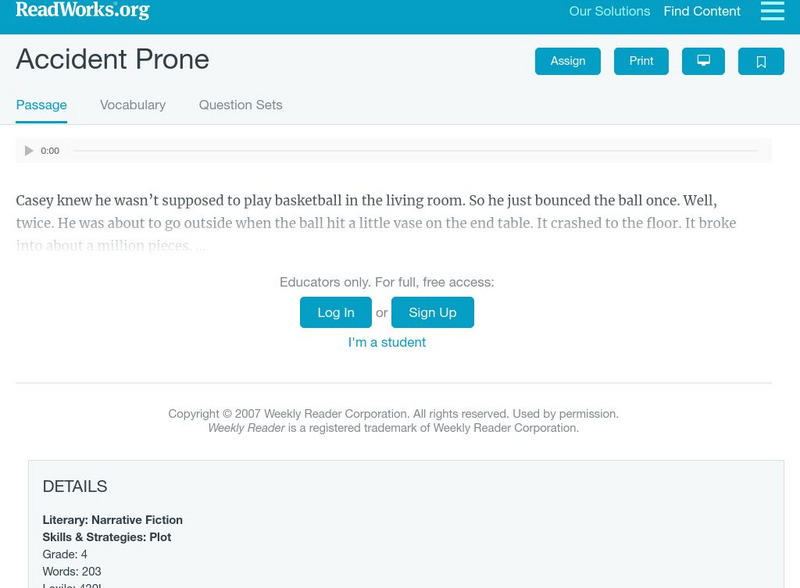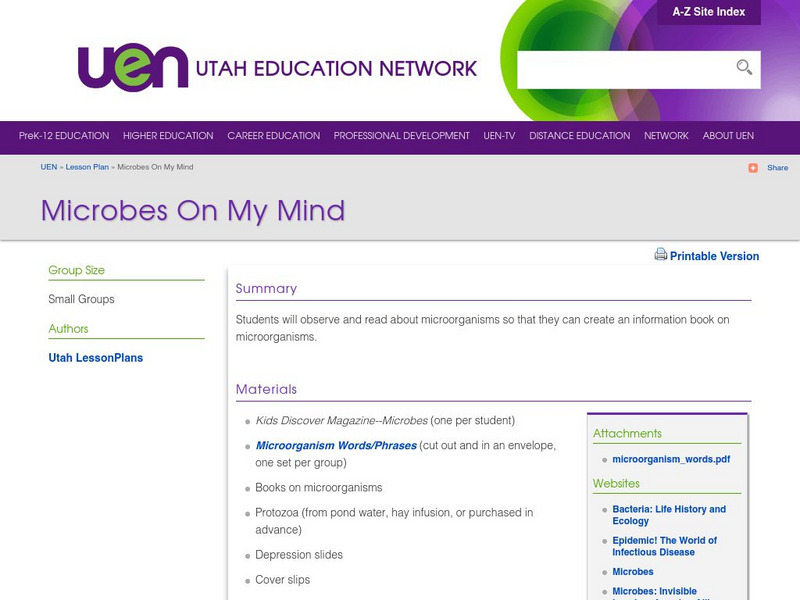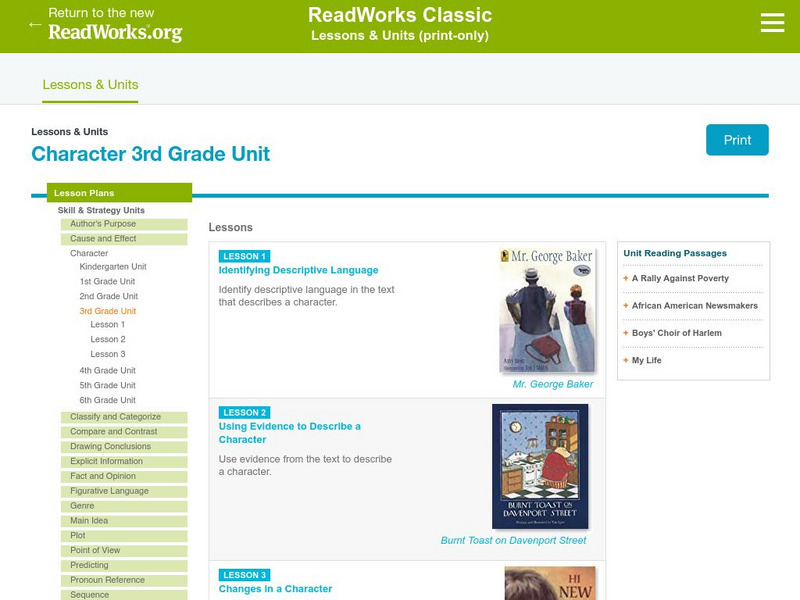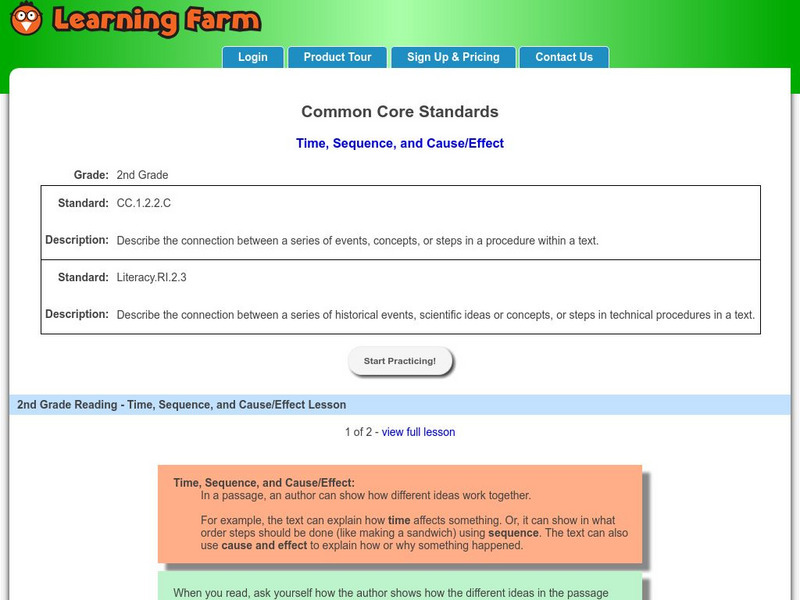Thomas Jefferson National Accelerator Facility
Jefferson Lab: Reading Passages: Looking for Quarks Inside the Atom
Read and fill in the blanks of this passage explaining quarks inside the atom. Each blank has a dropdown menu with choices. When you finish, click CHECK MY ANSWERS. If you pick a wrong answer, the right answer will be displayed along...
Thomas Jefferson National Accelerator Facility
Jefferson Lab: Reading Passages: Magnets and Electromagnets
Read and fill in the blanks of this passage explaining atomic history. Each blank has a dropdown menu with choices. When you finish, click CHECK MY ANSWERS. If you pick a wrong answer, the right answer will be displayed along with your...
ReadWriteThink
Read Write Think: Narrative Pyramid
A printable narrative pyramid where students can record information about a story including the character, setting, problem, main events, and solution. Directions on how to use this type of graphic organize as well as lists of teaching...
Quia
Quia: Polygon Quiz
In this game, students are to number the steps for making cookies in chronological order to reveal a hidden picture.
ReadWriteThink
Read Write Think: Comprehending Nonfiction Text on the Web
Contains plans for three lessons designed to improve comprehension of nonfiction, especially nonfiction texts on the web. It focuses on identifying text features, locating specific information, and generalizing that information. In...
ReadWriteThink
Read Write Think: Technical Reading and Writing Using Board Games
Contains plans for a game that helps teach technical reading and writing while reviewing a novel that students have read. In addition to objectives and standards, this instructional plan contains links to sites used in the lessons as...
ReadWriteThink
Read Write Think: Using Science Texts to Teach the Organization of Nonfiction
Contains plans for three lessons that use science textbooks to teach about the organizational features of nonfiction such as labels, captions, headings, and fonts. In addition to objectives and standards, this instructional plan contains...
ReadWriteThink
Read Write Think: Sequencing a Strategy to Succeed at Reading Comprehension
Contains plans for lessons that use the story of Paul Bunyan to teach about sequencing and order of events. In addition to objectives and standards, this instructional plan contains links to sites used in the lessons as well as...
Quia
Quia: Sequence: Putting Things in Order
Using clue words, students are asked to number a list of events in order from 1-10 and then check answers. Students have up to three attempts to solve.
Quia
Quia: Literary Terms Quiz
In this self-scoring practice activity, students read four passages and select the main idea of each.
Austin Independent School District
Austin Independent School District: Summary of Fiction and Nonfiction Text [Pdf]
This 31-page document focuses on teaching summarizing strategies for use with fiction and nonfiction texts. This series of lesson plans starts with fiction summarizing strategies such as "Somebody-Wanted-But-So-Then" and "Story Arch."...
Houghton Mifflin Harcourt
Harcourt: School Publishers: Test Tutor: Sequence
Students will increase their reading comprehension skills and understanding of story sequence by reading a passage of text and then answering questions about the order of events.
Other
Descriptive Writing Technique
Different techniques for writing detailed descriptions of an object are found on this page.
Read Works
Read Works: World's Greatest Robot
[Free Registration/Login Required] A literary text about brothers who work together to plan the perfect robot. A question sheet is available to help students build skills in reading comprehension.
Read Works
Read Works: Up in the Air
[Free Registration/Login Required] A literary text about a boy named Kurt and his first trip on an airplane. A question sheet is available to help students build skills in reading comprehension.
Read Works
Read Works: Earth 2072
[Free Registration/Login Required] A literary text describing what school might be like in the future. A question sheet is available to help students build skills in reading comprehension.
Read Works
Read Works: Earth 2072
[Free Registration/Login Required] A literary text about what school might be like in the future. A question sheet is available to help students build skills in reading comprehension.
Read Works
Read Works: Accident Prone
[Free Registration/Login Required] This story is an example of fiction and assesses students' understanding of plot. This passage is a stand-alone curricular piece that reinforces essential reading skills and strategies and establishes...
Utah Education Network
Uen: Lesson Plan: Microbes on My Mind
A four-day sixth-grade science lesson on the topic of microbes. Young scholars learn information about microbes and their functions through personal observation and several non-fiction texts, some of which are provided.
Read Works
Read Works: Character 3rd Grade Unit
[Free Registration/Login Required] In this three-lesson unit, young scholars learn how to identify language within a text that describes a character, use evidence from a text to describe a character, and to use details from a text to...
Annenberg Foundation
Annenberg Learner: Sequence
Listen to an explanation about the series of events in Cinderella. Then look at some pictures where the story's events are all mixed up and put them in the correct order.
University of North Carolina
University of North Carolina: Writing Center: Handouts: Writing About Science
Information and specific tips on what scientific writing is and how to make it more precise, clear, and objective.
CommonLit
Common Lit: "Don't Hate on the Trait" by Bird Brain Science
CommonLit.org is a wonderful resource to use in a Language Arts classroom. Each story or article is accompanied by guided reading questions, assessment questions, and discussion questions. In addition, students can click on words to see...
Learning Farm
Learning Farm: Ccs: Time, Sequence, and Cause/effect
An automated lesson will engage student's learning how to describe the connection between a series of historical events, scientific ideas or concepts, or steps in technical procedures in a text. An introduction to the concept precedes a...


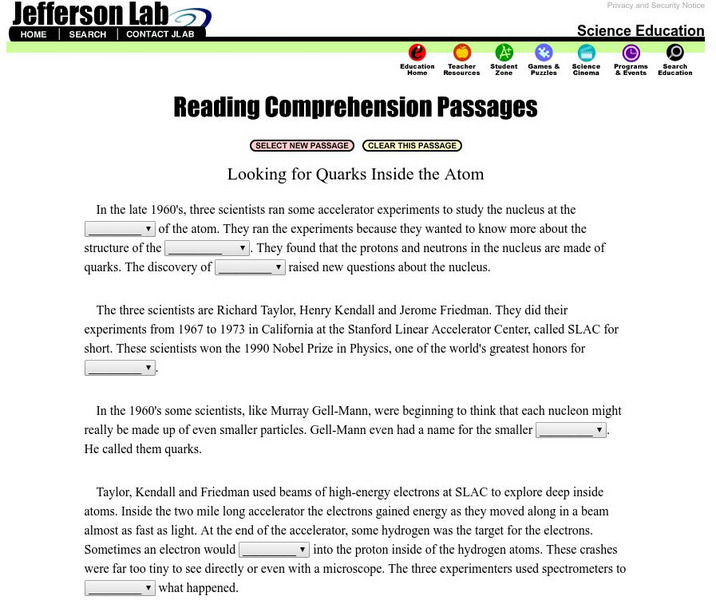
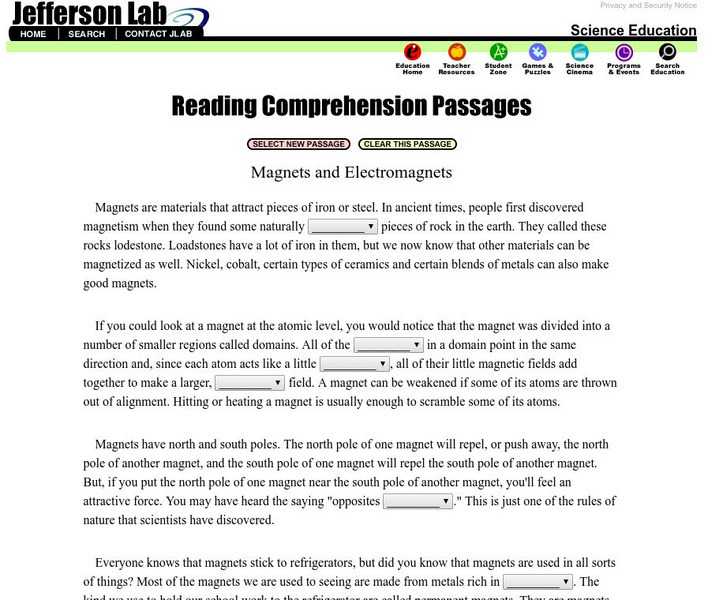
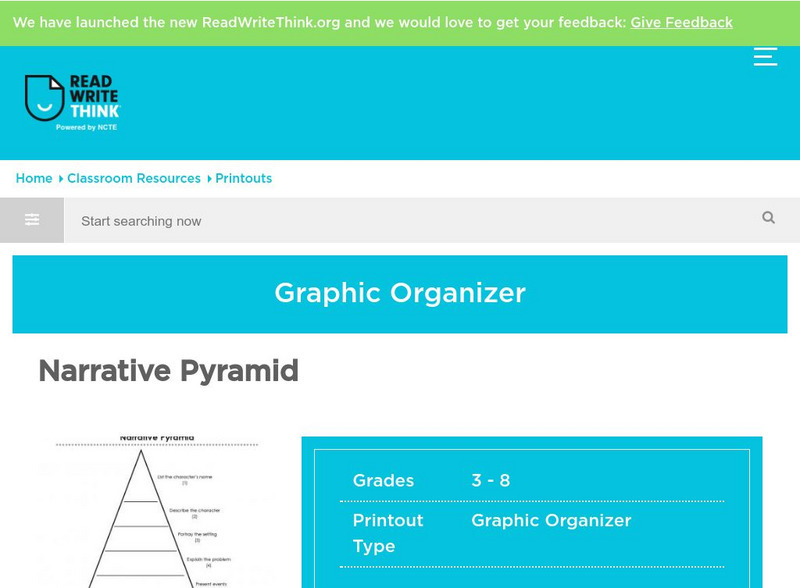




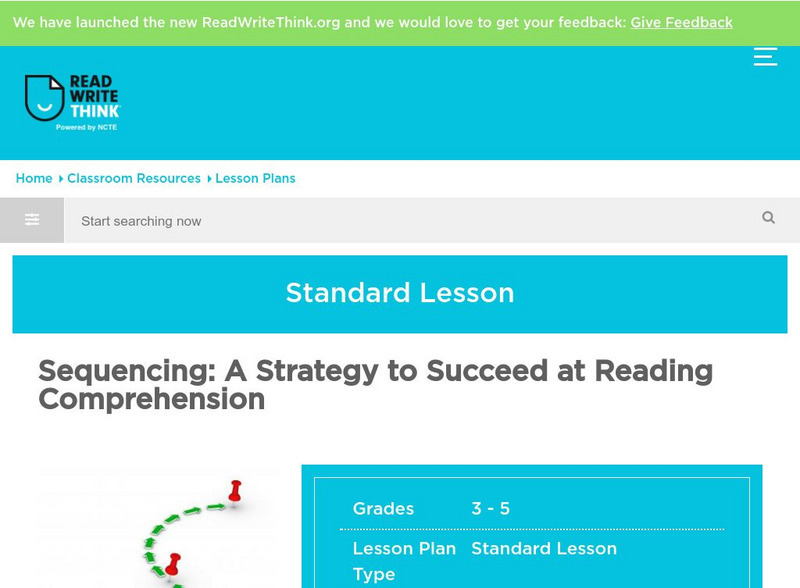
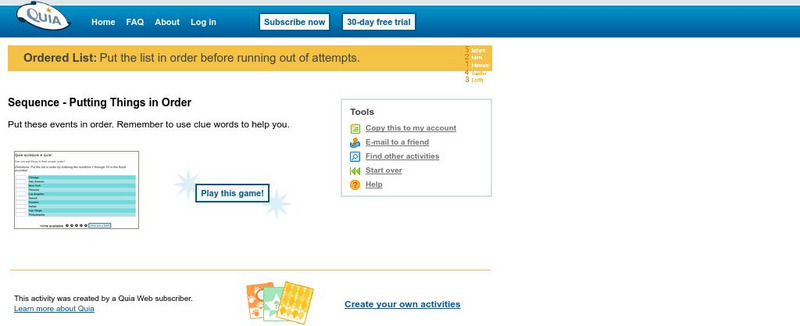

![Austin Independent School District: Summary of Fiction and Nonfiction Text [Pdf] Professional Doc Austin Independent School District: Summary of Fiction and Nonfiction Text [Pdf] Professional Doc](https://d15y2dacu3jp90.cloudfront.net/images/attachment_defaults/resource/large/FPO-knovation.png)






